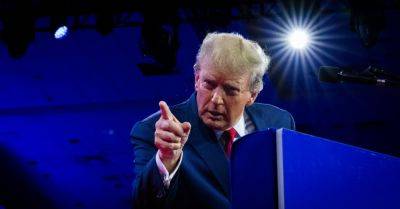Takeaways From the Trump Ballot Case
The Supreme Court on Thursday wrestled with whether former President Donald J. Trump is constitutionally ineligible to hold office again, as the Colorado Supreme Court had ruled in barring him from that state’s ballot.
The issue turns on whether Section 3 of the 14th Amendment applies to Mr. Trump because of his efforts to stay in office after losing the 2020 election that culminated in the Jan. 6, 2021, riot. The provision bars people who engaged in an insurrection against the Constitution after taking an oath to support it as an “officer of the United States.”
Here are several takeaways.
Enough justices expressed skepticism of the Colorado Supreme Court’s decision that a majority of the court appeared likely to hand Mr. Trump a victory and vote to overturn it.
Most justices seemed generally receptive to various arguments the former president’s lawyer, Jonathan F. Mitchell, advanced in support of reversing the lower court’s ruling. His two main contentions were that Section 3 is not “self-executing,” meaning it could only be enforced by a separate act of Congress, and that the provision simply did not apply to a former president like Mr. Trump.
Significantly, two of the court’s three liberal justices, Elena Kagan and Ketanji Brown Jackson, joined their conservative colleagues in displaying doubts about allowing a state to decide who can run for a national office.







